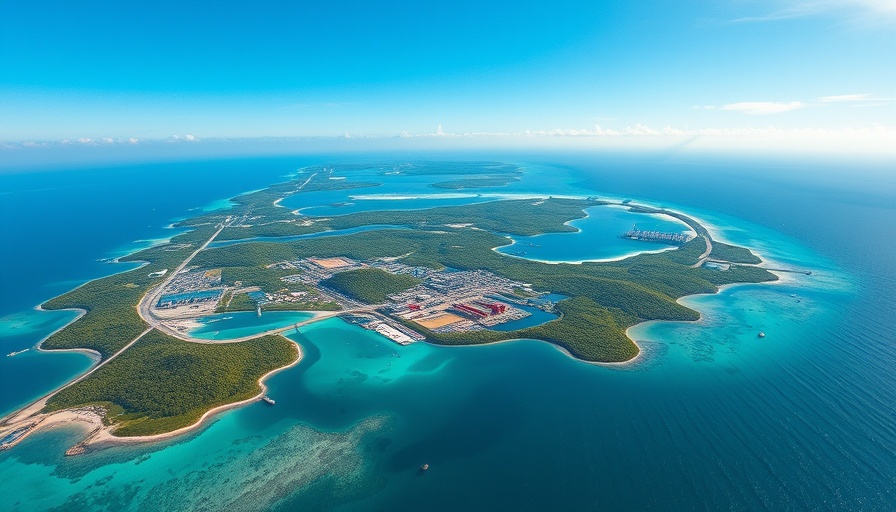
ExxonMobil’s Challenges with Rovuma LNG: A Deep Dive into Mozambique's Energy Landscape
As the world shifts toward cleaner energy and nations seek to capitalize on their natural resources, Mozambique stands at a critical juncture with its Rovuma LNG project. The ambitious project, poised to tap into vast offshore gas deposits, could majorly impact Mozambique's economy. However, the future of this venture remains uncertain, clouded by political dynamics and security concerns that could thwart ExxonMobil’s early works.
Understanding the Rovuma LNG Landscape
The Rovuma LNG project, anchored on the Afungi peninsula, is crucial not just for ExxonMobil, but also for Mozambique’s aspirations for significant economic growth. Estimated gas reserves off the coast could transform the country’s economic prospects. However, the realities on the ground suggest a rocky path ahead, as delays in construction bring into question the feasibility and timely implementation of this massive initiative.
The Impact of Political Instability
The current political environment in Mozambique plays a pivotal role in influencing the progress of the Rovuma LNG project. With new leadership implementing policies and negotiating with oil majors, the oil and gas industry must navigate a maze of local governance concerns and potential corruption. Without a stable political backdrop, the $30 billion investment by ExxonMobil risks being undermined by the very conditions it seeks to exploit.
Shared Infrastructure and Security: A Double-Edged Sword
The ongoing partnership between Mozambique and Rwanda, aimed at enhancing security in Cabo Delgado, is imperative for the project’s stability. The Rwandan military has been in Mozambique since 2021, providing crucial support against insurgency. However, the uncertainty regarding the Rwandan military’s long-term mission and Mozambique’s ability to fund this partnership raises critical risks for the integrity and safety of the project’s operations.
Lessons from Other Global LNG Projects
In parallel to Mozambique's situation, other global Liquefied Natural Gas (LNG) projects have faced similar obstacles. For instance, delays in the Coral Norte project by ENI present cautionary tales about the challenges oil majors face in navigating the complexities of local governance, negotiations, and security arrangements. Understanding these lessons is crucial for ExxonMobil as it moves forward in a politically volatile environment.
Prospective Benefits: What Lies Ahead for Mozambique?
If successful, the Rovuma LNG project has the potential to not only propel Mozambique into a new economic era but could also serve as a catalyst for regional stability and growth. Investments in infrastructure, job creation, and energy security may yield significant improvements for the local population, particularly in addressing long-standing issues related to poverty and underdevelopment.
Engaging Locally: The Role of Corporate Responsibility
ExxonMobil, along with other stakeholders, has an opportunity to engage deeply with local communities to ensure that the benefits of the LNG project are shared equitably. This engagement will bolster corporate social responsibility, helping to bridge the gap between foreign investments and local developmental priorities.
Conclusion: Navigating a Path Forward
In conclusion, while the Rovuma LNG project stands as a beacon of potential economic growth for Mozambique, it is equally fraught with challenges stemming from political instability and local security concerns. For investors and stakeholders alike, ensuring the project’s success involves not only navigating the complex political landscape but also fostering partnerships that prioritize stability, training, and investment in local communities. By doing so, Mozambique can unlock its natural resource potential while nurturing a brighter, more equitable future.
 Add Row
Add Row  Add
Add 




Write A Comment